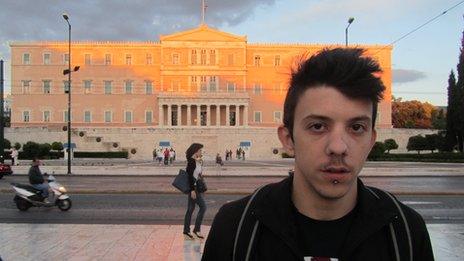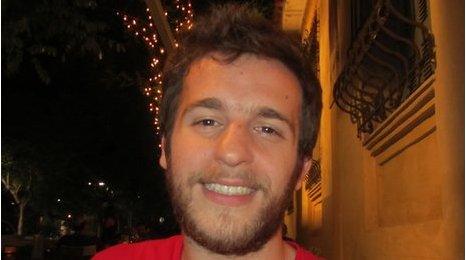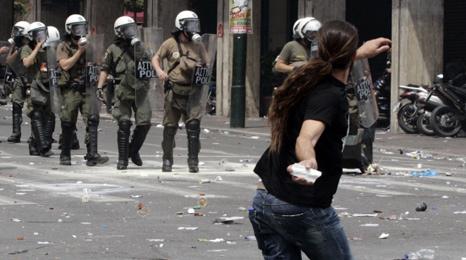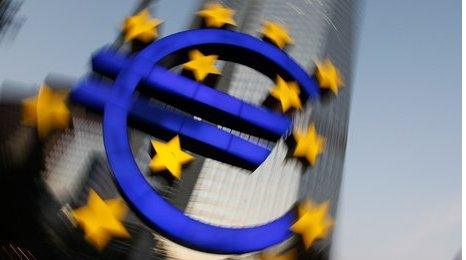Young and jobless in Greece, the country with no cash
- Published

Nikos Savvatis sits with his friends on the steps of Syntagma Square, overlooked by the Greek parliament.
"It's chaos right now in Greece," says the 22-year-old as he points to the large cream building.
Nikos is jobless and has been for the last two years.
He says: "I am searching every day for a job but they [employers] tell me that they have less money so they don't need any more people."
In a country laden with huge debts, the most recent unemployment figures by Eurostat show one in five people is out of work there.
However, it's far worse for the under-25s. More than 50% have no job.
'No more dreams'
"Everyone is starving. We kids don't have any more dreams," says Nikos.
He recently moved from Corfu to Athens because his father had medical problems.
He says he doesn't want any specific job.
"Anything could work," he says. "I don't have a problem with the work."
The austerity measures put in place by the last Greek government have made it harder for businesses to recruit.
But they're necessary if Greece is to continue receiving European loans, thereby attempting to secure Greece's future in the eurozone.
Some of the Greek cuts have included a 22% reduction in the minimum wage and a wage cut for all public sector employees.
In nearby Klavthomos square, 20-year-old student Anna Rolsvou is playing cards with her friend Mirella.
She's not optimistic either about the prospect of what'll happen when she graduates.
She wants to go into accounting or HR but says: "You're considered lucky if you have a job.
"If it's your first year to work you're not even paid. You have to work by doing it for free to get the experience, so afterwards they may pay you.
"Life is getting more expensive, every month we have a new tax. Greeks do not have hope."
- Published15 May 2012

- Published15 May 2012

- Published14 October 2011
